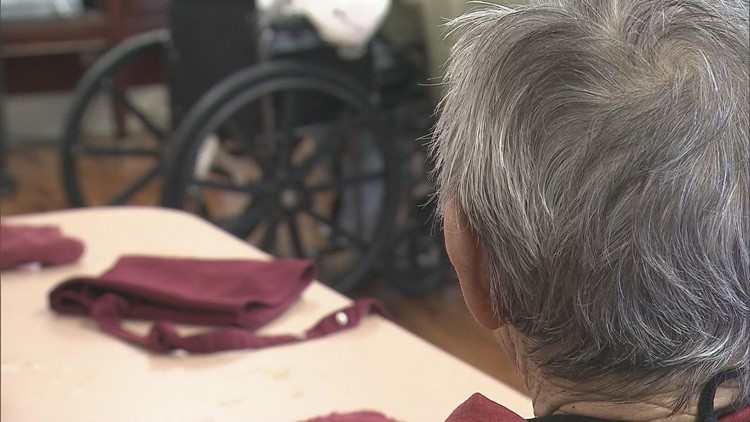JACKSONVILLE, Fla — For those living with Alzheimer's or dementia, social distancing in the time of coronavirus means a total disruption to daily routines. How can caregivers make the biggest positive impact on their loved ones and patients?
"It's okay to ask for help," said Milva Ballester, Program Manager for the Alzheimer's Association in North Florida.
Most of the challenges in dealing with patients and loved ones with Alzheimer's lies in the disruption to routines, for example, the closures of facilities that would normally allow social interaction.
"There may be caregivers who used to rely, for example, on adult day cares," Ballester said. "So instead of being able to have their loved ones participate in adult day care, they have to do activities at home."
Alzheimer's or dementia does not physically increase the risk of contracting COVID-19, although behaviors associated with the disease could.
"Some individuals with dementia or Alzheimer's may forget they have to wash their hands and have these additional hygiene practices," Ballester said. "Caregivers are having to ensure that they are implementing these practices on a regular basis."
If you are working with someone with Alzheimer's or dementia, there are several things you can do to ensure they are practicing proper hygiene.
The Alzheimer's Association suggests the following:
- Posting signs around the home or facility to remind people of the importance of hand-washing.
- Continuously demonstrating proper hand-washing techniques.
- Always carry and offer hand sanitizer when you're working with your loved one or patient.
RELATED: VERIFY: Hand sanitizer can protect against coronavirus, but not as well as washing your hands
There are also support groups available, albeit not in-person, that can help those who are taking care of someone with Alzheimer's. The Alzheimer's Association has set up a helpline at 1-800-272-3900.
"Just make sure that you do remain calm in your home, that you do have a lot of different activities available in the home," Ballester said. "What that's going to do is help that individual that is living with dementia also feel safe and protected."



